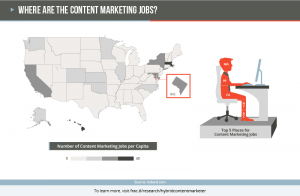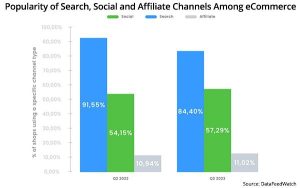— December 5, 2018
“Think big.” If you’re someone who wants to get their hands wet by dipping them into the world of investing, then chances are, you’ve already heard of that motto one too many times. In fact, it’s the motto that most successful investors live by. And, all for good reason. After all, if you’re an investor, then why not dream the biggest dream that you can?
It’s an age-old saying taught to us at a young age, but is it always the case? The short answer is, no. As a matter of fact, as far as investing goes, well, in today’s age anyway, big ideas and big investment returns come in small packages. So, how do you go about starting the process?
Big is not always better
As an investor that’s just starting out, it’s easy to get confused at first. After all, there are over 20,000 publicly traded securities just in the U.S. alone. And, when you’re raised on thinking big, you would immediately think of the largest companies traded on the most major exchanges. However, as tempting as it may seem, there are also many overlooked and often misunderstood smaller companies, which are worth taking a good look at, considering you look hard enough in the beginning.
Often referred to as microcap companies, these are companies that have market capitalizations between $ 50 million to $ 300 million and are usually less talked about in the mainstream investment media. However, it’s actually these smaller microcap companies that gave business management and development consultant, Ajene Watson, a great idea.
Currently the CEO and chairman of Digital Asset Monetary Network, Inc. (DigitalAMN), Watson thought: What if he could take this sort of investment flexibility to everyday people? What if he can take private, high value, fast-growth startups, and development-stage companies, and make them available within a space where the everyday hard working person can have the opportunity to invest in them?
And thus, DigitalAMN was born partly from this concept.
A specialized tech accelerator that utilizes the Public Accelerator-Incubator model (PAI), DigitalAMN takes, as Watson puts it in a recent interview, “a unique approach in bridging the gap between startups, everyday people, and angel investors.”
In the same The Sports Circus interview, Watson explained how one of DigitalAMN’s main goals is to provide people with financial literacy, in order to be more responsible with decisions, especially financial ones.
Watson says, “What we’re aspiring to do at DigitalAMN, is to provide folks with a bit of financial literacy from the very beginning.” He continues, “You can invest into our ecosystem and it doesn’t mean that you’ll become rich overnight, but gives you the ability to start paying attention, to start realizing that you can become a part of that bigger movement of investing. But you have to start somewhere.”
Bridging the gap
This motto could not be truer for DigitalAMN. Leveraging the PAI model in a unique way, the company manages to bring small and early-stage businesses into an ecosystem, where both accredited investors and everyday people have an equal shot at growing their money via investment into fast growth, high-valued private startups, and development-stage companies.
This way, startups can get the capital and support they need to get their ideas off of the ground, and everyday people now have the opportunity to secure investments that they can grow from the ground up, even if they don’t have the big funds that most accredited investors have.
As Watson puts it, DigitalAMN provides everyone with a “dynamic environment to seamlessly exchange value and build prosperity together,” as the company ensures that anyone from any socioeconomic standing can have a piece of the pie.
So, the next time you look for a new investment or decide to help a friend who’s just starting their own company, learn to evaluate from the bottom; look for opportunities that will get you the best bang for the buck. After all, companies like DigitalAMN are working to make sure you’re always invited to the party.
Business & Finance Articles on Business 2 Community
(27)






